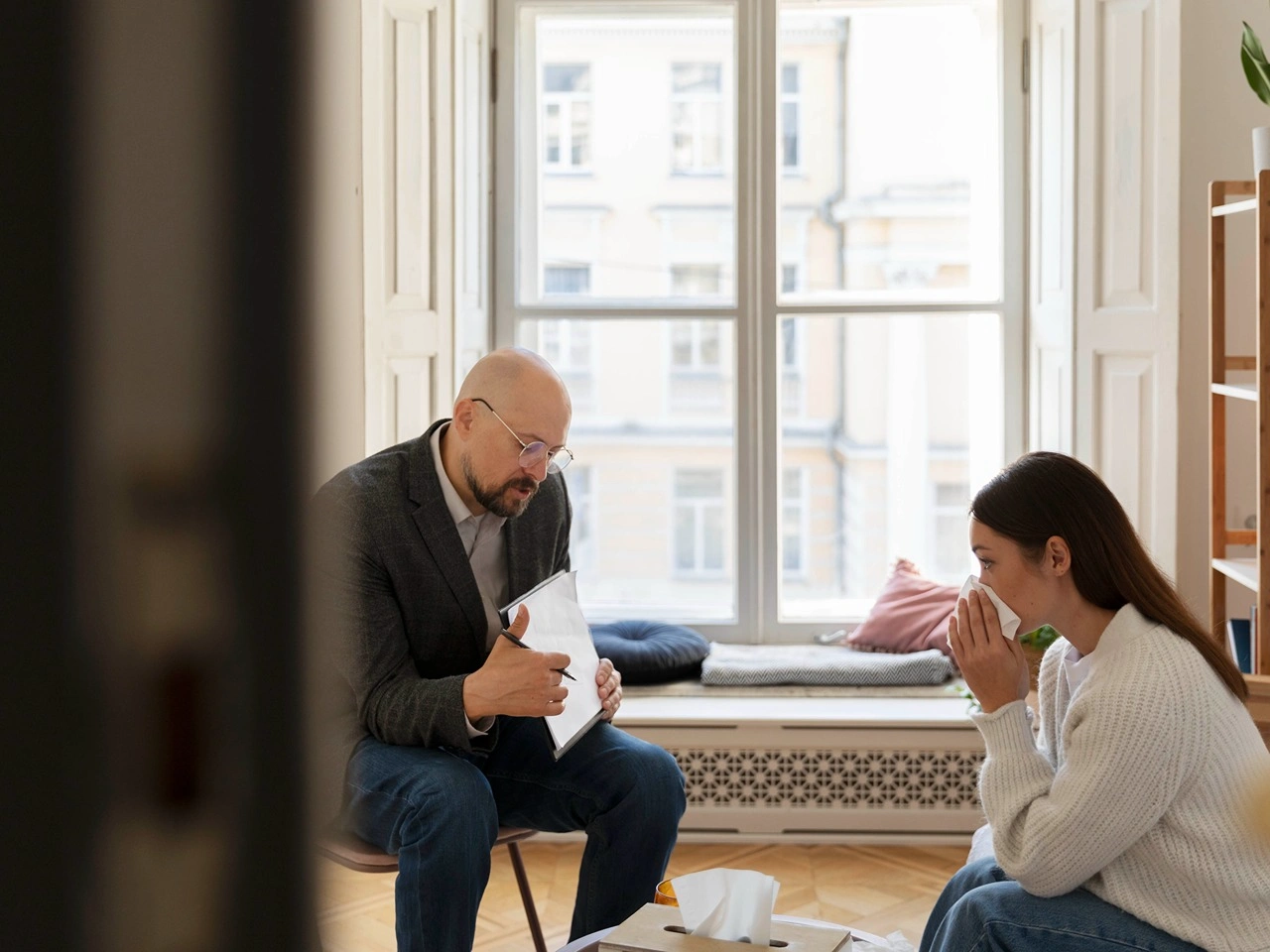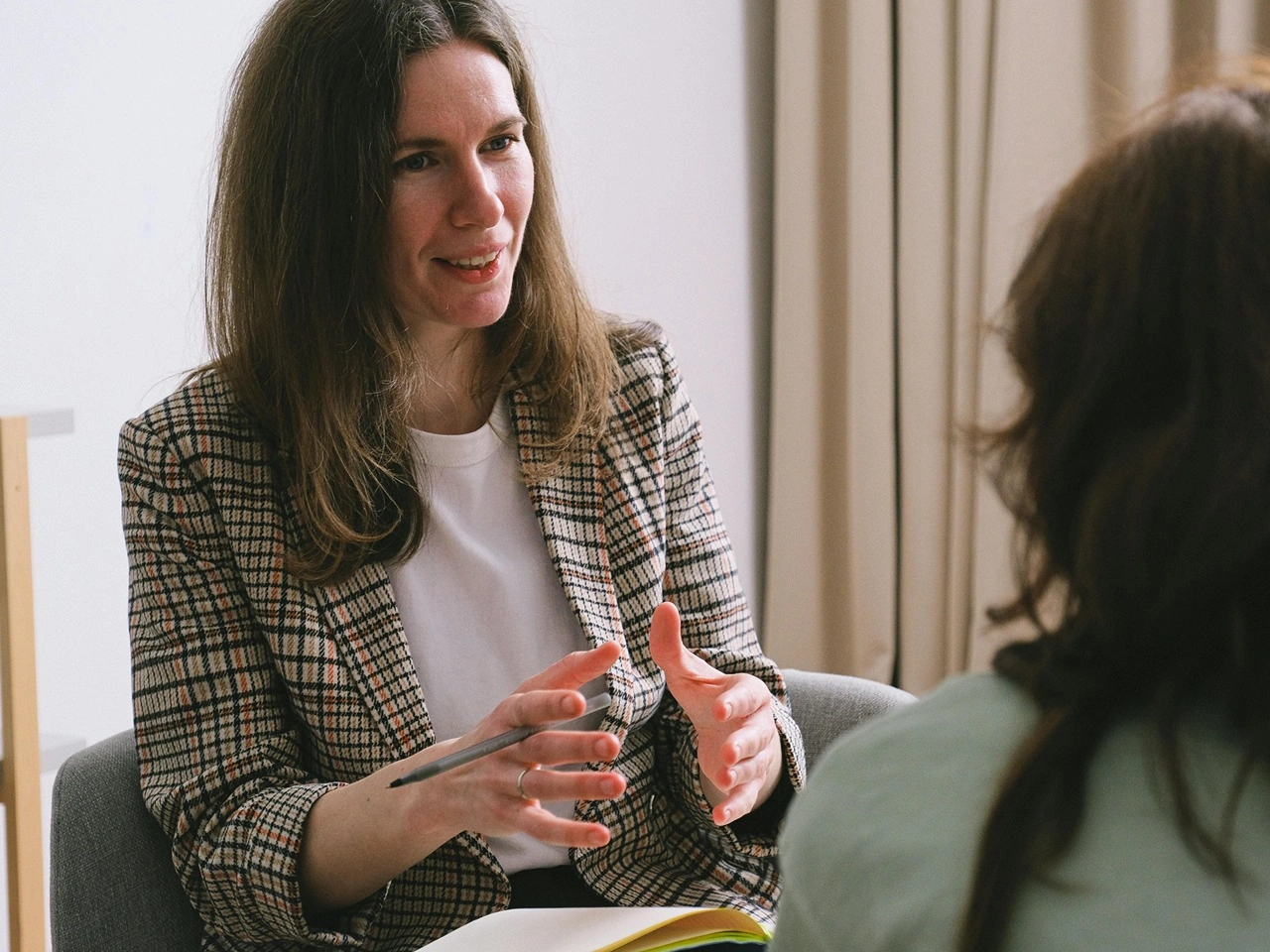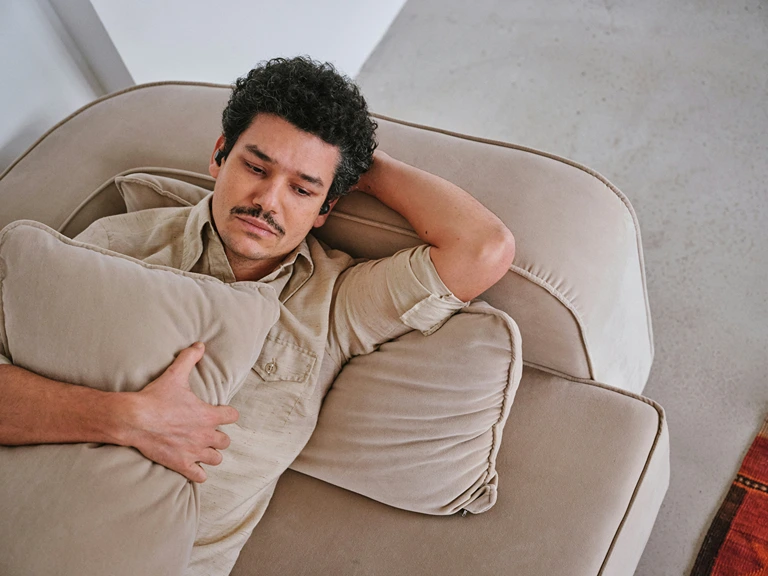
How to Find the Right Therapist: Choosing the Right Fit and Kind of Therapy
Learn how to find the right therapist for your mental health needs. Get tips on choosing and finding a therapist who’s the perfect fit for you.

Have you ever wanted to see a therapist but weren’t sure how to find the right one for you? It can feel a little overwhelming, but finding a good therapist really comes down to finding someone you feel comfortable with. Whether it’s a counsellor, psychotherapist, or licensed therapist, having someone who really listens can make a big difference.
It’s not just about their credentials—it’s about feeling heard and supported. A therapist can help with mental health conditions or just give you a safe space to talk about what’s on your mind. Meeting your therapist in person or trying online therapy can help you figure out if it feels like a good fit.
Looking for a therapist means thinking about the kind of therapy and type of therapist that matches you. Many therapists specialize in different areas, so finding the right match can take a little trial and error. Read on to get some tips on how to find a therapist that’s right for you.
Why Finding the Right Therapist Is Key to Your Mental Health

Finding the right therapist can feel overwhelming, but it makes a big difference in your mental health journey. The right match helps you feel heard, supported, and safe.
Why the Right Therapist Matters
A good therapist helps you feel comfortable enough to open up and share honestly. With approaches like CBT, psychotherapy, or group therapy, they guide you through challenges like anxiety or stress.
- Establishes Trust and Comfort: Feeling safe and respected in therapy or counselling sessions helps you be honest and get the most out of therapy.
- Facilitates Personal Growth: A good therapist can help you understand yourself better, build coping skills, and gain confidence.
- Ensures Expert, Tailored Care: Choosing a therapist who’s trained and experienced in your mental health needs makes therapy more effective.
- Promotes a Positive Therapeutic Alliance: A strong connection with your therapist keeps you motivated and engaged in your mental health journey.
Key Factors to Consider When Finding a Therapist
Finding a therapist that’s right for you isn’t just about their qualifications—it’s also about how well they fit your needs and preferences. Paying attention to a few key factors can make searching for a therapist less stressful and help you get the support you’re looking for.
- Specialization: Look for a therapist, psychologist, or clinical psychologist who knows how to handle your specific concerns, whether it’s trauma or anxiety.
- Treatment Approach: Ask about the type of therapy they use, like cognitive behavioural therapy, EMDR, or psychotherapy, to make sure it suits your goals.
- Personality and Compatibility: Feeling comfortable with your therapist’s personality and communication style makes sessions easier and more effective.
- Credentials and Experience: Check that your therapist is licensed, trained, and experienced in your area of concern. It’s okay to ask questions about their credentials.
- Logistics: Think about whether you prefer in-person or online therapy, how many sessions you might need, and if your insurance plan covers the sessions.
- Goals and Preferences: Know what you want from therapy and share it during your first session. A good therapist can help you set goals and create a plan that fits your needs.
What Makes a Good Therapist or Counsellor the Right Fit

When you’re looking for a therapist, it’s not just about their training—it’s about how you feel with them. Choosing a good therapist means finding someone who makes you feel safe and supported while also knowing how to address your specific concerns.
Client’s Experience & Feelings
How you feel about a potential therapist says a lot. If you’re comfortable and hopeful, that therapist is likely a good match for your needs.
- Comfort and Safety: When you work with a therapist, you want to feel comfortable, like you’re in a safe space where you don’t have to pretend. That comfort helps you relax and actually share what’s going on.
- Feeling Understood: It matters when a particular therapist really listens and seems to get what you’re going through. Even if they ask questions to clarify, you can tell they’re trying to address your specific concerns.
- Trust and Rapport: Trust takes time, but you’ll know it’s there when you start to believe your therapist is likely on your side. That sense of rapport makes it easier to be honest and open.
- Hope and Progress: A good way to know a therapist is right is when, after a number of sessions, you feel hopeful about where things are going. You start noticing progress, even if it’s small, and that makes a big difference.
Therapist’s Professional Qualities
Therapists and counsellors bring different skills, and choosing a therapist is a very personal matter and having a good therapist means finding one whose strengths fit what you’re looking for.
- Empathy & Active Listening: Sometimes one therapist stands out because they actually listen and reflect back what you’ve said. That empathy makes you feel seen and less alone.
- Non-Judgmental Approach: The kind of therapist you want to find is one who accepts you without judgment. You should never feel like you’re being told you’re wrong for feeling the way you do.
- Knowledge and Specialty: Some therapists are trained in specific methods, like cognitive-behavioural therapy or eye movement desensitization and reprocessing. A particular therapist with the right specialty can really help you find better ways to cope.
- Cultural Competence: It also helps when a therapist is right about understanding your background. Therapists are trained to be sensitive to culture, but the right match means they adjust their approach so you feel respected.
- Adaptability & Genuineness: A new therapist should be flexible and reliable, willing to adjust if something isn’t working. It feels easier to work with a therapist who is authentic and shows up as a real person.
Red Flags to Watch For
Sometimes the therapist you’re not happy with just isn’t the right fit. Another way to find the right match is to notice warning signs early and explore mental health resources or community mental health options.
- Interruption and Distraction: If a potential therapist cuts you off a lot or seems distracted, it doesn’t feel good. You deserve their full attention.
- Telling, Not Asking: Therapists and counsellors are supposed to guide you, not tell you exactly what to think or do. If they’re not asking questions, that can be a problem.
- Discomfort or Distrust: If you keep feeling uncomfortable or can’t trust your therapist after a number of sessions, it might be time to consider a new therapist.
- Stuckness: Sometimes therapy just feels stuck, like nothing is moving forward. When that happens, it’s okay to talk it through or even look for another way to find a therapist who’s a better match for your needs.
How to Find a Therapist That Meets Your Needs: Tips and Steps

When you’re looking for mental health support, it can feel like a lot to figure out. You want a therapist to help, but you also want to be sure that a therapist is right for your needs. It doesn’t have to be perfect the first time — sometimes it takes a little trial and error to help you find the right fit.
1. Think About Your Goals First
Before starting therapy, think about what you want to get out of it, whether it’s managing stress, healing from trauma, or just having someone to talk to. Knowing your goals makes it easier to find the therapist right for you. If you’re interested in CBT or EMDR, look for a therapist trained in those approaches, and remember, a good therapist will adapt as your needs change.
2. Check Your Insurance and Finances
Therapy can be expensive, so it’s worth checking what your insurance covers. Look through your insurance provider’s mental health resources to see how many sessions are included and if your insurance provider covers or reimburses you for seeing someone out of network.
If money’s tight, there are still options:
- Some therapists offer sliding-scale rates.
- Community mental health centres often provide affordable support.
- Training clinics with supervised interns can be a low-cost way to work with a therapist.
3. Ask for Referrals
Sometimes the easiest way to find a therapist is by asking around. A friend, your doctor, or even a coworker might suggest a therapist to help. Just keep in mind — the therapist right for them might not feel like the right one for you, and that’s okay.
If asking around doesn’t work, another way to find support is through telehealth platforms or online counselling directories. They make it easier to help you find the right match.
4. Explore Local and Community Resources
Don’t forget to check what’s around you. If you’re a student, your school may already have counselling available. If you’re working, your job might offer support through an employee assistance program.
You can also check out:
- Faith-based counselling through a church, mosque, or synagogue
- Advocacy groups that share mental health resources
- Community mental health centres for group or one-on-one support
5. Use Online Directories
If you feel stuck, mental health association websites can really help you find the right therapist. Many of them have directories where you can search by city, postal code, or specialty.
This way, you can narrow things down, whether you’re looking for family counselling, trauma support, or just a general therapist to help with everyday stress.
6. Look for Specialized Support
Sometimes you want to find a therapist who focuses on the exact thing you’re going through. Mental health associations and networks often have lists of specialists who can help you find the right support.
Some examples include:
- Anxiety and depression resources
- PTSD and trauma counselling networks
- Eating disorder associations
- Workplace or trade union mental health programs
7. Ask Questions Before You Commit
When you meet a potential therapist, don’t be shy about asking questions. It’s the best way to make sure that a therapist is right for you. You could ask things like:
- What do you specialize in?
- How long have you been practicing?
- How many sessions might it take before I start feeling better?
- Do you offer telehealth services?
The answers will give you a better sense of whether you feel comfortable moving forward.
8. Pay Attention to How You Feel
At the end of the day, no matter how qualified a therapist is, how you feel with them matters most. If you don’t feel comfortable or listened to, it might not be the right therapist for you.
Ask yourself:
- Do I feel respected and understood?
- Do I feel safe opening up?
- Do I believe this therapist is likely to help me?
If not, it’s okay to look for a new therapist. Sometimes it takes a few tries, but that’s just part of finding the therapist to help you feel supported and understood.
Online Therapy vs. Therapist in Person: Choosing the Right Option

When you’re looking for mental health support, you might wonder if online therapy or in-person sessions are better. Both can help; it just depends on what feels right for you.
Online Therapy
- Super convenient since you can talk to a therapist right from home via audio or video chat.
- Easier to fit into a busy schedule without worrying about travel.
- A good way to connect if local mental health resources are limited.
- Feels private, especially if you don’t want to walk into a clinic.
In-Person Therapy
- Sitting with a therapist in person can make it feel easier to open up.
- No internet or tech issues getting in the way.
- Some approaches, like eye movement desensitization and reprocessing (EMDR), often work best face-to-face.
- Gives you a quiet space away from everyday distractions.
There’s no “one right” answer — it’s about what makes you feel comfortable and helps you stick with the process. Some people even try both before deciding what’s the best fit.
Types of Mental Health Professionals for Your Therapy Needs

Looking for mental health support can feel confusing with so many options out there. Knowing the different types of therapists and therapies can help you find the right fit.
Psychiatrists
Psychiatrists are medical doctors who focus on mental health. They can diagnose conditions, prescribe medication, and sometimes offer therapy too. If you think medication might help, this is the kind of therapist to help.
Psychologists
Psychologists are trained to provide therapy and do things like testing and assessments. They don’t usually prescribe medication, but they can guide you through various therapy approaches to help you work on your goals.
Counsellors or Therapists
These are often the first people you think of when you’re looking for mental health support. They focus on listening, guiding, and giving you coping strategies so you can handle whatever life throws your way.
Clinical Social Workers
Clinical social workers can also do therapy, but what makes them stand out is how connected they are to community mental health resources. They’re a great option if you want both counselling and help finding extra support.
Psychiatric Nurses
Psychiatric nurses usually work with psychiatrists. They can help manage medications and provide care for your overall mental health.
Different Types of Therapy Options to Support Your Mental Health

There’s no one “best” therapy — the right one is the kind that helps you feel supported and moving forward.
Cognitive Behavioural Therapy (CBT)
Helps you recognize and change negative or unhelpful thoughts and behaviours, while teaching practical tools to handle everyday challenges.
Eye Movement Desensitization and Reprocessing (EMDR)
Often used for trauma and PTSD, this therapy helps reprocess painful memories so they feel less overwhelming and more manageable.
Psychodynamic Therapy
Explores past experiences and deep patterns to show how they shape your present thoughts, emotions, and relationships.
Humanistic Therapy
Focuses on self-growth and building on your strengths, encouraging you to become more self-aware and authentic.
Group Therapy
Brings people with similar struggles together for guidance and support, connection, and shared learning in a safe environment.
Family or Couples Therapy
Enhances communication and strengthens relationships by helping loved ones resolve conflicts and understand each other better.
Final Thoughts
Finding the right therapist can feel overwhelming, but it’s a really positive step for mental health. With someone who feels like a good fit, opening up becomes easier, and getting the support needed feels much more natural.
It’s not just about their training, it’s about whether you feel safe, understood, and comfortable with them. Pay attention to things like trust, comfort, and whether you notice progress after a few sessions, because those are signs the therapist is right for you.
And if you’re not happy with how it’s going, that’s okay, you can always look for a new therapist until you find the right match. At the end of the day, the goal is simple: to have a therapist to help you feel better, grow stronger, and move forward in life.
Frequently Asked Questions
What to expect in your first therapy session?
Seeing your therapist for the first session is really just about getting comfortable and starting to build trust
Sharing your story: The therapist may ask what brought you in and what you’d like to get out of counselling.
Background questions: They might ask about your life, history, or stressors, but only to understand your needs better.
Comfort first: You don’t have to spill everything at once — it’s okay to take your time.
Planning together: You’ll probably talk about what your goals are and how many sessions might be helpful.
How do I know when it’s the right time to start counselling?
Honestly, the right time is whenever you start feeling like you can’t handle it all on your own anymore.
Feeling overwhelmed: If stress, anxiety, or sadness feels too heavy, that’s a sign.
Everyday struggles: When daily life or relationships feel harder than usual, counselling can really help.
Lack of coping tools: If the ways you normally deal with things just aren’t working, it’s worth talking to a therapist.
Early support: You don’t need to wait for things to fall apart — sometimes starting early makes all the difference.
How do I know which type of therapy or type of therapist is right for me?
It usually comes down to what you need most and who you feel comfortable with.
Therapy options: CBT is great for learning practical tools, while EMDR can help if you’ve gone through trauma.
Relationship focus: If your struggles involve family or a partner, couples or family therapy may be the way to go.
Therapist match: Sometimes you don’t know until you meet them — it’s all about how you feel in their presence.
Flexibility: If one approach doesn’t feel right, it’s totally okay to try another.
What are some tips for choosing a therapist and making sure the therapist is right for my needs?
Think of it like finding the right teammate — you want someone who has the skills but also feels like a good fit for you.
Qualifications: Check that your therapist is licensed and experienced in the area you need help with.
Comfort level: Pay attention to how you feel — safe, respected, and understood should be non-negotiable.
Practical details: Think about whether you want in-person or online therapy and what your insurance covers.
Clear goals: Be open about what you’re looking for so your therapist can work with you toward those goals.
Is it okay to tell the therapist if I don’t feel the therapist is right for me?
Absolutely — and any good therapist will understand.
Openness matters: It’s normal if the first therapist you try isn’t the best match.
Your comfort: If you don’t feel supported or understood, you deserve to find someone who makes you feel that way.
Options available: There are lots of therapists out there, plus community and online resources if you want to explore.
Empowering choice: At the end of the day, this is your journey, and you get to choose who walks alongside you.
Check out more helpful articles
Lorem ipsum dolor sit amet, consectetur adipiscing elit, sed do eiusmod tempor incididunt ut labore et dolore magna aliqua. Lorem ipsum dolor sit amet, consectetur adipiscing elit, sed do eiusmod tempor incididunt ut labore et dolore magna aliqua.
I Don't Want to Do Anything: Why You Feel Mentally Exhausted and What You Can Do About It
Feeling like you don’t want to do anything? Find out why you feel unmotivated and learn practical ways to restore your motivation, balance, and mental well-being.

Key Red Flags of an Emotionally Unavailable Man and How to Recognize Them Before It’s Too Late
Learn to spot an emotionally unavailable man! Recognize signs of emotional unavailability, like pulling away and being distant, before getting emotionally hurt.

What Is Romantic Attraction? Understanding How It Shapes Our Feelings and Connections
Romantic attraction affects the way we feel, connect, and form relationships. Learn how this feeling shapes the way we build emotional bonds and how it influences our romantic orientation.

Contact US
Know who you want to book with?
Book Online HereHave questions about counselling or something else?
Call or email us.
Want help choosing the right therapist? Complete our connect form below.
We are ready and looking forward to meeting you. Get started today by clicking the link below and booking your free 15-minute discovery call. All our services are private and confidential.

Disclaimer: Content on this website is for informational purposes only. Visiting this website does not establish any type of therapist-client relationship with Upstream Counselling or its staff. Information obtained from this site does not substitute for a thorough medical and/or psychiatric evaluation by an appropriately credentialed and licensed professional.







